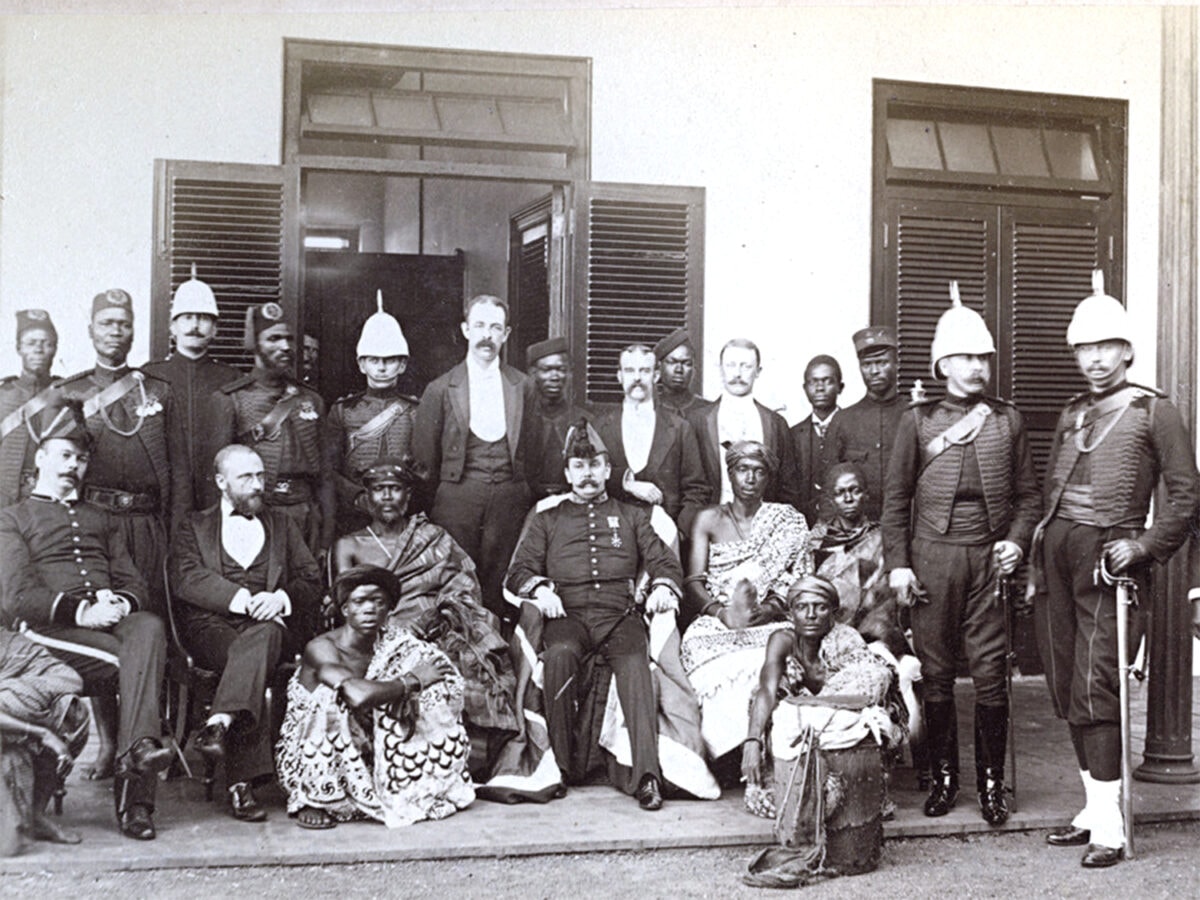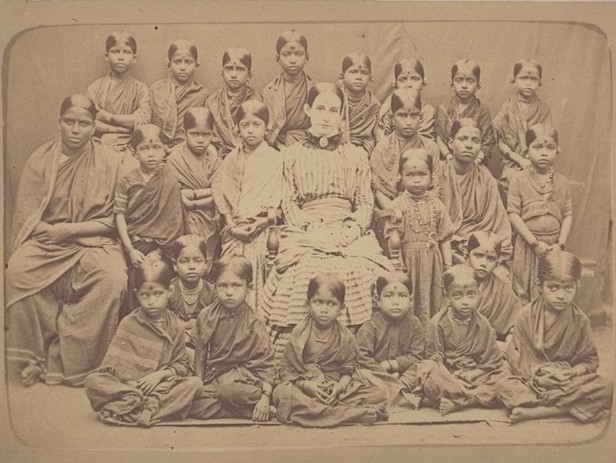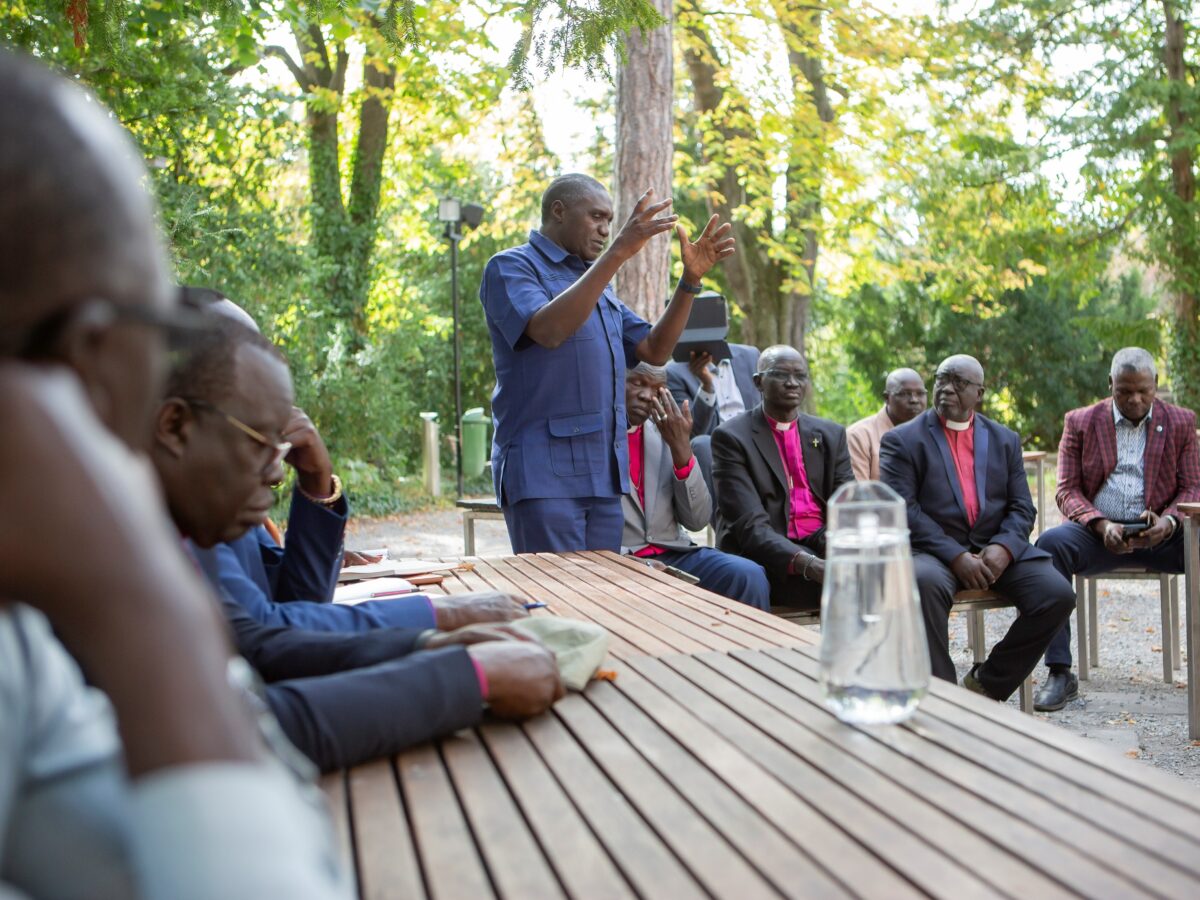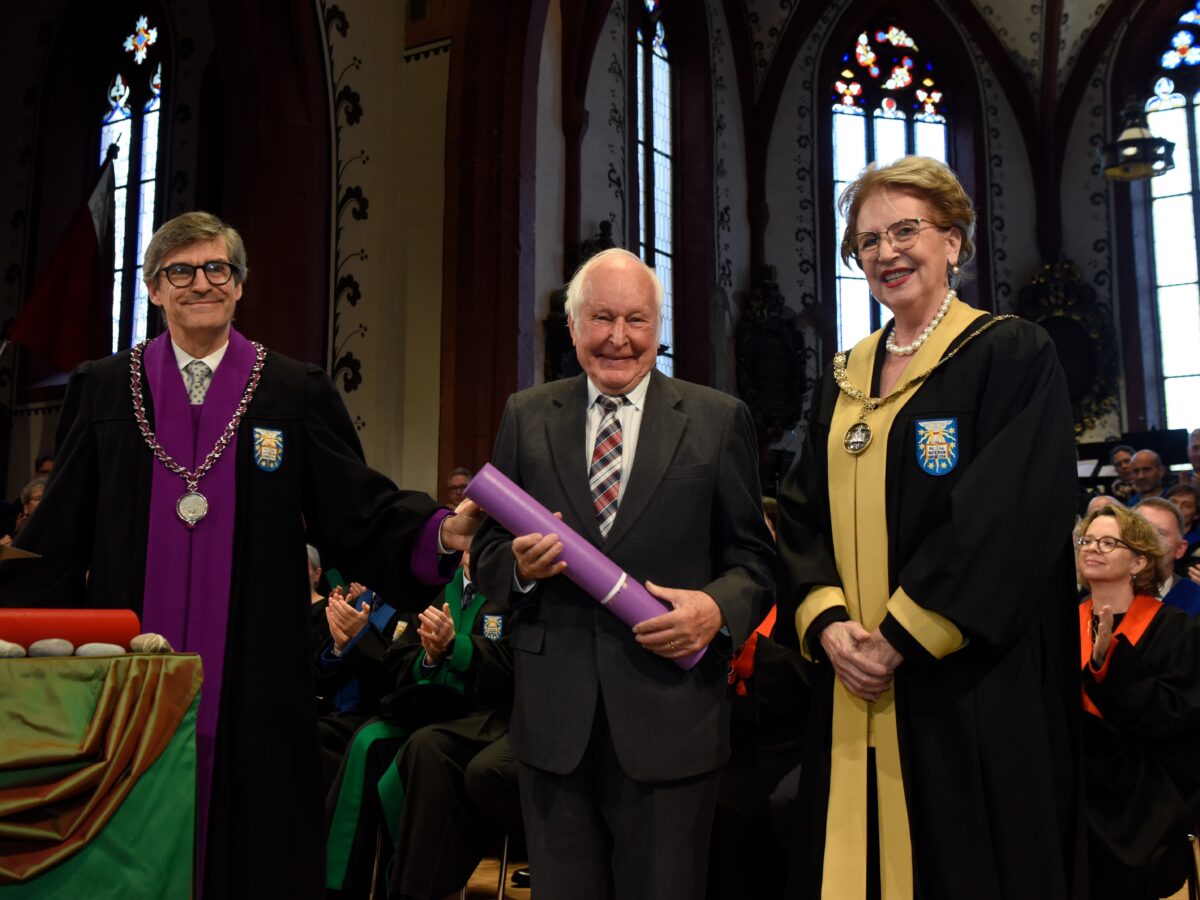English government officials, lieutenant governor, house soldiers, emissaries from Asante. Source: BM Archives, QD-30.106.0058
Historian Ulrich van der Heyden takes a critical look at the history of mission. As part of its webinar series on mission history, Mission 21 invited him to speak on the topic of "Mission and colonial violence". In his lecture, he drew an ambivalent picture of mission.
Subjugations of foreign peoples with sword and cross have a long history, says historian Prof. Dr. Dr. Ulrich van der Heyden in Mission 21's webinar "Mission-Colonialism Revisited" on "Mission and Colonial Violence." Institutionalized mission and governments gladly and often sought each other's support in expansion plans.
Stronger together
Not every colonization was accompanied by the church, van der Heyden relativizes. And many missionaries were also on the move without state support. Nevertheless, they often sought cooperation.
In the 19th century, the first Protestant missionary societies emerged and sent out their workers. "In this way, missionaries became important actors in globalization, because not only were they active on the ground, but through them important knowledge about the nature of the non-European world and its cultures was disseminated to the Old World, which in turn attracted more Europeans there," says van der Heyden.
One of the oldest Protestant mission societies, the Basel Mission, founded in 1815, also counted on the protection of colonial powers, for example England. On the Gold Coast, today's Ghana, missionaries from Basel penetrated the territory of the Asante Empire in the interior and had to be wary of attacks. At the same time, the Basel mission lobbied the British House of Commons for a colonial subjugation of the Asante and supported the military campaigns of the British against the Asante kings with its own companies, as Claudia Buess, director of studies at Mission 21, explained.
Lawyers or agents?
Must Protestant missionaries, then, be seen as agents of European colonization? Did they contribute to colonial violence against resident ethnic groups with their work? Van der Heyden comments, "It cannot be seriously doubted that most missionaries in the 19th century adhered to the colonial idea." However, van der Heyden emphasizes, many missionaries saw themselves as "advocates for the natives" - the contemporary term.
For example, even in his old age, the German missionary Alexander Merensky strongly changed his attitude towards Germany's colonial power politics in the Transvaal. In the first half of his life, he advocated the expansion of Christianity and the colonial mission in German East Africa. In old age, he ascribed to the Christian mission the duty to vehemently oppose "injustices, ignominies and crimes" of the Europeans.
Both and
The missionaries' support or opposition to the colonial powers varied greatly. The majority of German missionaries did not directly support the imperial advances in Africa. On the other hand, missionaries from Berlin offered little resistance to Boer and English raids among the natives. Others tried to negotiate between the locals and the colonial powers, and thirds shared their knowledge as scouts, interpreters, or scribes. What almost never happened, however, was that missionaries themselves took up arms.
A conclusive answer to the question of whether or not the missionaries were agents of colonialism is impossible, says van der Heyden: "There can be no sweeping judgment on this subject." To be sure, the synergies of the two movements cannot be dismissed. Nevertheless, the historian says, the missionaries cannot be condemned across the board.
"We can discuss this with different points of view," van der Heyden concludes. But, he stresses, at the end of the day, those affected in the former colonial territories would decide for themselves how to make that assessment.
Text: Samuel Rink
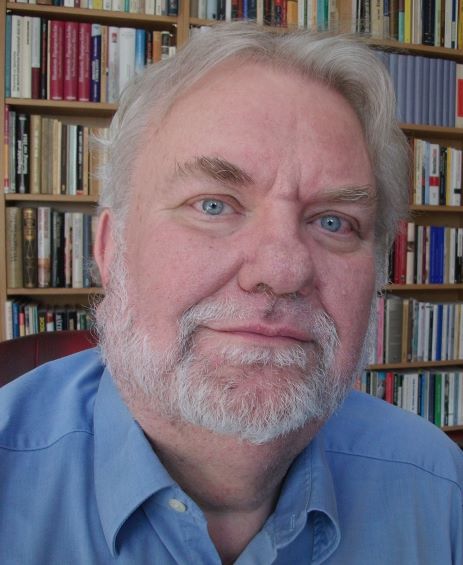
Prof. Dr. Dr. Ulrich van der Heyden is a historian of Africa, missions and colonialism as well as a political scientist. He has been working on the history of Christian missions at the time of colonialism in Africa for forty years and has written over 60 monographic publications and more than 200 scholarly essays and is the initiator and (co-)editor of seven book series. Van der Heyden is Visiting Research Professor at the University of South Africa, Pretoria, also a private lecturer at the Free University of Berlin and a research associate at the Faculty of Theology of the Humboldt University in Berlin.
